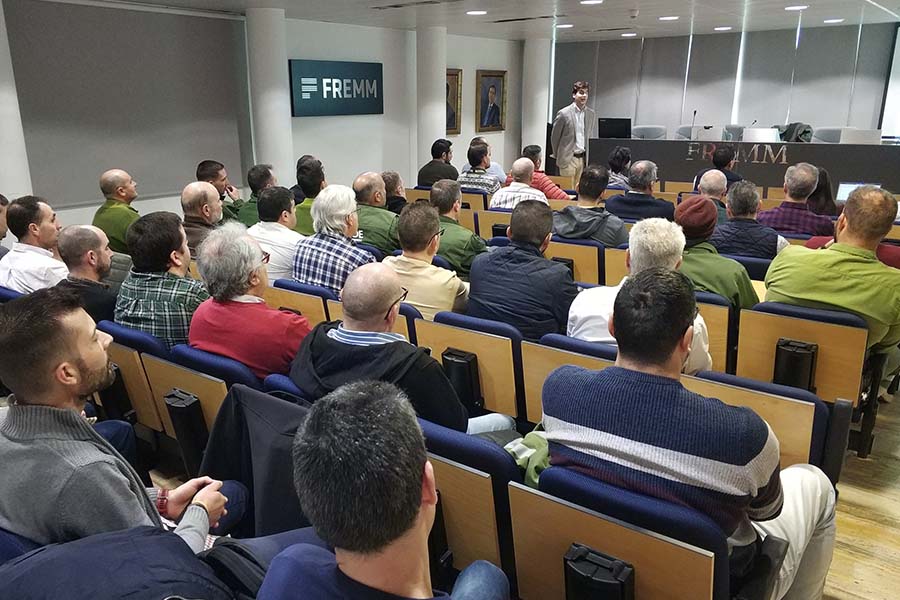Over 180 i-DE employees in the Region of Murcia focus on the key role of grids in the energy transition
-
Iberdrola España's distribution company held these conferences in Murcia and Cartagena together with the head of the Network Business in the region.
-
The company has improved the quality of service it offers its customers in the Region of Murcia, with the best year-end value in history. In this region, i-DE manages close to 30,000 km of power lines, has 9,700 transformer stations in service and more than 70 substations.

i-DE, Iberdrola España's distribution company, held the 19th edition of its Network Business meetings, bringing together over 180 employees in the Region of Murcia. This new edition served to highlight and take stock of the activity carried out during 2023, in which the company improved the quality of service offered to its customers, with the best year-end value in history.
During the sessions held in Murcia and Cartagena, the company shared its current context analysis, and the opportunities and challenges arising from the energy transition: self-consumption, energy communities, batteries or data processing centres, as well as the importance of cybersecurity and innovation as the backbone of the activity.
The Regional Manager, Guillermo Raga, urged to reinforce people's safety to minimise the electrical risk and guarantee protection, as well as care for the environment.
The 19th edition of the Networks Business meeting focused on electrifying the economy, which is necessary to achieve decarbonisation – a key process for climate change. Electricity grids are a key element in the energy transition, integrating new connection points for both renewables and recharging, being able to manage bi-directional electricity flows and adapting to new needs of all agents.
The best quality of supply
The company has improved the quality of service it offers its customers in the region, with the best year-end value in history. In the region, i-DE manages nearly 30,000 km of power lines, has 9,700 transformer stations in service and over 70 substations.
In recent years, the company has undertaken an ambitious plan to digitalise its electricity grids, converting its more than 900,000 meters in the region and the infrastructure that supports them into smart meters, incorporating remote management, supervision and automation capabilities.
The digitisation of the electricity distribution grid will provide more information to implement additional energy efficiency and sustainability measures, in a way that is committed to ambitious and urgent climate action. The deployment of the smart grid makes it possible to respond to new models of grid use and offer a better service to citizens.
